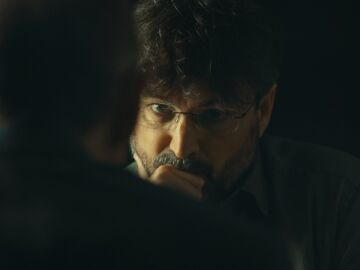
Just a few days ago, the San Sebastian Film Festival announced that Jordi Évole’s documentary in which he interviews former ETA leader Josu Ternera and one of its direct victims, ‘Don’t call me Ternera’, would be released inaugurating the ‘Made in Spain’ section. And before the day in question, the controversy broke out. In a letter titled ‘Against the whitewashing of ETA and Josu Ternera‘, just over 500 people have asked the Zinemaldia organization not to screen the film, pointing out that it “is part of the process of whitewashing ETA and the tragic terrorist history” in Spain, while defining it as a “justifying and trivializing story that puts murderers and accomplices, victims and resisters on the same level.
Among the critics is TVE journalist Miguel Ángel Idígoras, who has criticized Évole for saying that the interview, the center of the documentary, “will serve to understand part of our history.” “Veal neither regrets nor collaborates in clarifying murders of the gang,” said Idígoras, to which the producer of the documentary responded surprised by the fact that a journalist like him “draws so many conclusions without watching a single minute of the interview“. “You know absolutely nothing about a job to which we have dedicated years of completely honest work“, Évole responded. The controversy did not stop there.
After receiving the letter, the director of the festival, José Luis Rebordino, went out to defend the selection of the film to inaugurate the ‘Made in Spain’ section‘ from Zinemaldia and explained that although the festival “has not received” the aforementioned letter, it has been forced to respond by raising the issue to the media. Rebordino thanks the signatories for stating, “among other things, that the San Sebastián Festival rejects the whitewashing of terrorism and adheres to the principles and defense of Human Rights,” but explains that refuses to withdraw ‘Don’t call me Veal’ for the simple fact that its protagonist is a former leader of the terrorist group.
“Cinema is, among many other things, the source of history and has often taken care of bringing to the screen protagonists, perpetrators of episodes of unjustifiable violence but about which it has had the will to investigate,” he explained, giving many other examples of this type. And regarding the documentary, Rebordinos assures that “the non-fiction that concerns us now neither justifies nor whitewashes ETA because this festival would not screen a film with those premises.
To argue his position, the festival director recalled how in another edition of Zinemaldia a documentary that interviews some of the perpetrators of the Chilean coup d’état, like Augusto Pinochet and some of his generals. “There it was shown that giving your voice is not, much less, giving your reason.” That is why the festival has estimated that “the film ‘Don’t call me Veal’ has to be seen first and criticized later and not the other way around,” he noted. Likewise, he has opened the doors to “carry out a private prior screening” to a small group of people representing the signatories.
He San Sebastian Film Festival, one of the most recognized in the industry, takes place in Donosti between September 22 and 30. ‘Don’t call me Veal’ is part of the programming for the first day, the Friday, September 22, when the Évole documentary will be screened at 12:00 in the original version (in Spanish, Basque and French) with subtitles in Spanish and electronic subtitles in English.
Source: Lasexta
Bruce is a talented author and journalist with a passion for entertainment . He currently works as a writer at the 247 News Agency, where he has established himself as a respected voice in the industry.












